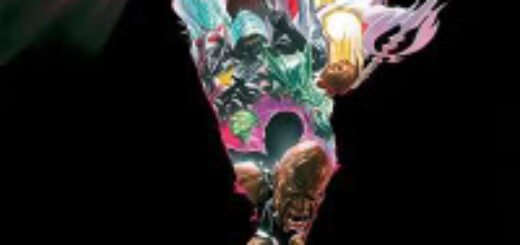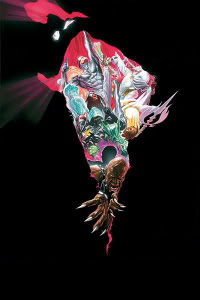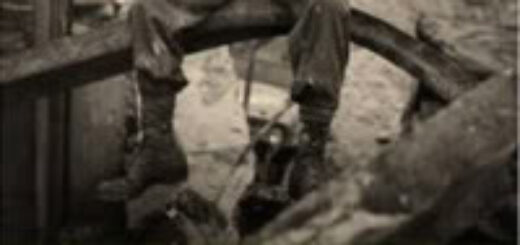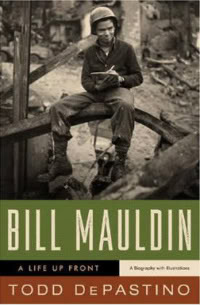Wildstorm’s “World’s End” Relaunch Examined
 Over at io9, the website’s resident comics expert Graeme McMillan has put together a nice analysis of the events leading up to the current "World’s End" relaunch of DC’s Wildstorm line. I was pleasantly surprised by the recent issues #1 of Wildcats and The Authority — mainly because I’ve been a fan of both these series for quite a while and been both terribly excited and subsequently disappointed by prior attempts at re-establishing the universe around each series.
Over at io9, the website’s resident comics expert Graeme McMillan has put together a nice analysis of the events leading up to the current "World’s End" relaunch of DC’s Wildstorm line. I was pleasantly surprised by the recent issues #1 of Wildcats and The Authority — mainly because I’ve been a fan of both these series for quite a while and been both terribly excited and subsequently disappointed by prior attempts at re-establishing the universe around each series.
The new Wildstorm status quo places its superheroes in a world ravaged by events that they share much of the blame for, and this dynamic provides the opportunity for stories that have always been relegated to one-shot or "What If?" status elsewhere. So, I guess you can color me intrigued.
Here, McMillan provides a quick assessment of recent Wildstorm history:
This isn’t the first time that the Wildstorm line has gone all out for change; in 2003, their Coup D’Tat series had the Authority depose the US Government and set themselves up as dictators of the United States, before they realized that they couldn’t be bothered with all the paperwork. But with fans still hurting about 2006’s failed Worldstorm relaunch (which died when Grant Morrison’s core two series Wildcats and The Authority disappeared after one and two issues, respectively), will even the end of the world get them interested in checking out the series again?
Like McMillan, I’m impressed with the decision to change the Wildstorm Universe so dramatically — and I’m also hoping there isn’t a deus ex machina in the works at this point. For more on the new Wildstorm U and some thoughts from creators on why it was necessary, head over to io9.



 Kurt Busiek’s brain is about average-sized, I assume. And yet it contains this entire city, detailed down to every last resident’s personality and scrap of trash in the street.
Kurt Busiek’s brain is about average-sized, I assume. And yet it contains this entire city, detailed down to every last resident’s personality and scrap of trash in the street. You saw the story, posted here on our own beloved website a couple of days ago: comic book movies have earned over a billion United States dollars this summer, despite an iffy economy that may or may not have something to do with those loveable funsters who frolick near the Potomac.
You saw the story, posted here on our own beloved website a couple of days ago: comic book movies have earned over a billion United States dollars this summer, despite an iffy economy that may or may not have something to do with those loveable funsters who frolick near the Potomac.
 In many ways, Bill Mauldin lived out the American Dream, starting out as a physically unimposing ‘desert rat’ in the southwest, then joining the army and becoming a star soldier-cartoonist, and retiring as one of the best known editorial cartoonists in the country. He died in 2003.
In many ways, Bill Mauldin lived out the American Dream, starting out as a physically unimposing ‘desert rat’ in the southwest, then joining the army and becoming a star soldier-cartoonist, and retiring as one of the best known editorial cartoonists in the country. He died in 2003. The television and movie Writers Guild strike lurches into its ninth week. If it goes on much longer, we may be doomed to even more staged “reality” and contest shows. Might be a good time to rekindle a book reading habit.
The television and movie Writers Guild strike lurches into its ninth week. If it goes on much longer, we may be doomed to even more staged “reality” and contest shows. Might be a good time to rekindle a book reading habit. As you read this, the shopping malls are jammed. Many opened in the dark, with special sales to attract the first shoppers. The news programs will have stories about how many people got trampled trying to buy an item marked down a lot, and perhaps a heartwarming piece about a child who buys something for a poor family.
As you read this, the shopping malls are jammed. Many opened in the dark, with special sales to attract the first shoppers. The news programs will have stories about how many people got trampled trying to buy an item marked down a lot, and perhaps a heartwarming piece about a child who buys something for a poor family. Saturday noon, and it still hadn’t arrived. Voldemort’s work? Or the machinations of something a bit more prosaic – book ninjas, maybe, or gremlins? But no. We fretted in vain. At about three, the doorbell rang, and there he was – Mr. Delivery Man, bearing our own copy of Harry Potter and the Deathly Hallows.
Saturday noon, and it still hadn’t arrived. Voldemort’s work? Or the machinations of something a bit more prosaic – book ninjas, maybe, or gremlins? But no. We fretted in vain. At about three, the doorbell rang, and there he was – Mr. Delivery Man, bearing our own copy of Harry Potter and the Deathly Hallows. I used to have a reputation for sometimes being kind of negative. That comes with the career in radio and “journalism,” and I’ve worked at overcoming it. But, like most childhood pleasures, not using a skill doesn’t mean you no longer know how to use it.
I used to have a reputation for sometimes being kind of negative. That comes with the career in radio and “journalism,” and I’ve worked at overcoming it. But, like most childhood pleasures, not using a skill doesn’t mean you no longer know how to use it.  Hilton was busted for violating her plea agreement. As such, she was real stupid. Hilton is despised for being an “artificial” celebrity, as if there’s any other kind, and for being a whinny spoiled brat. I understand; she is a whinny spoiled brat. But that’s not against the law; if it were, I’d have a much, much easier time going shopping here in Fairfield County Connecticut.
Hilton was busted for violating her plea agreement. As such, she was real stupid. Hilton is despised for being an “artificial” celebrity, as if there’s any other kind, and for being a whinny spoiled brat. I understand; she is a whinny spoiled brat. But that’s not against the law; if it were, I’d have a much, much easier time going shopping here in Fairfield County Connecticut. This is a show that lost its raison d’être the moment actress Nancy Marchand died, back in 2000. Her character, momma Livia Soprano, was the story’s anchor. Without her, the plot never was as compelling, nor was it as understandable. It was reduced to its core element: Ozzie and Harriet Nelson, the family of Made Men.
This is a show that lost its raison d’être the moment actress Nancy Marchand died, back in 2000. Her character, momma Livia Soprano, was the story’s anchor. Without her, the plot never was as compelling, nor was it as understandable. It was reduced to its core element: Ozzie and Harriet Nelson, the family of Made Men. And, sadly, that’s what The Sopranos had been about.
And, sadly, that’s what The Sopranos had been about.








